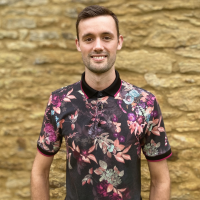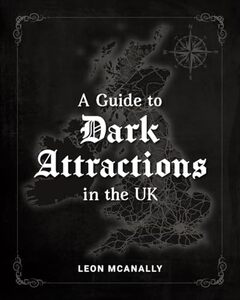Profile

Leon mcanally
History
- Profile View
1624
- Books
1
- Member Since
Jul 2023
- Gender
Male
- Country
United Kingdom
- Born
11 August
- Profession
Author
About
Growing up in the historic country town of Bury St Edmunds in Suffolk, I was undoubtedly influenced by history from a young age, learning about the story of St Edmund and the gruesome Tudor period of King Henry VIII. After leaving school I went on to take an interest in tourism, as I wished to explore and learn about the culture and history of other countries.
It was while studying travel and tourism at the West Suffolk College in Bury St Edmunds that I first heard of the term dark tourism. I was immediately curious to find out what this phrase meant. I discovered that this term was given to places linked to death, suffering and tragedy and those who travelled to them. While in college I learned that some individuals went to such sites to expand their knowledge on a particular event, while others visited such places to show their respect for those who had suffered. I then furthered my studies at the University of Northampton (UON), concentrating my work on dark tourism, learning more about why people are motivated to visit such attractions along with understanding the ethical concerns surrounding dark tourism.
Since graduating from the UON, I have visited numerous dark tourism attractions such as the concentration camp of Auschwitz-Birkenau in Poland and the Catacombs of Paris in France, alongside exploring such places in Britian like the International Slavery Museum in Liverpool and Rothwell Bone church in Rothwell village in Northamptonshire.
As there seems to be a growing phenomenon in the macabre and morbid, I have felt that it’s an appropriate time to shed light on Britain’s dark tourism sites through its dark heritage by publishing a guidebook to dark attractions in the UK. My passion for this book stems from my belief that dark tourism encompasses a much broader range of attractions that what mainstream media has identified. I think that dark tourists often overlook dark heritage sites that are an important part of our British history when they first search for the macabre and morbid.
I am continuing to be driven by the believe that it’s sometimes critical to remember our past tragedies as a country as they can help us deal with personal events within our own lives, alongside serving as a learning tool on a wider scale.
